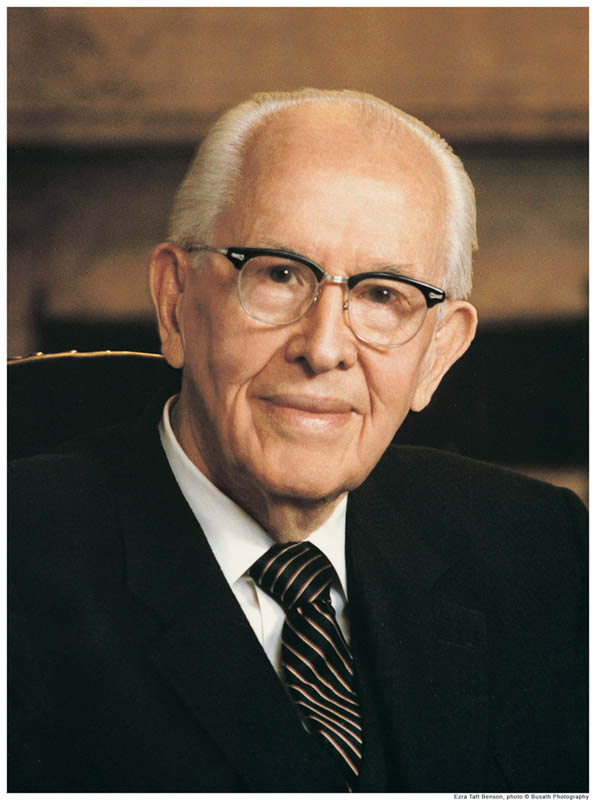Pride is a difficult vice to conquer. It’s relatively easy to recognize when we have done something overt that we shouldn’t do, such as swearing or stealing. But recognizing and rooting out pride in our characters can be completely different. The nature of pride itself keeps us from recognizing it. Rather, pride lets us rationalize and keeps our egos “safe” on top. Because of this, it is a dangerous sin that allows us to mask and rationalize other sins in our lives.
 President Ezra Taft Benson, thirteenth president of The Church of Jesus Christ of Latter-day Saints, gave a landmark address on pride in 1989. According to him, a major component of pride is enmity toward God. “Enmity” could be defined as hostility or antagonism. As he explained it, the humble are teachable and willing to change their opinions and actions to be in accordance with God’s will. The prideful, however, think that God should agree with them.
President Ezra Taft Benson, thirteenth president of The Church of Jesus Christ of Latter-day Saints, gave a landmark address on pride in 1989. According to him, a major component of pride is enmity toward God. “Enmity” could be defined as hostility or antagonism. As he explained it, the humble are teachable and willing to change their opinions and actions to be in accordance with God’s will. The prideful, however, think that God should agree with them.
That’s an interesting concept, isn’t it? And it’s an attitude that is all too easy to miss in our own selves.
further explains:
When we direct our pride toward God, it is in the spirit of “my will and not thine be done.” As Paul said, they “seek their own, not the things which are Jesus Christ’s.” (Philippians 2:21.)
Our will in competition to God’s will allows desires, appetites, and passions to go unbridled.
The proud cannot accept the authority of God giving direction to their lives. (See Helaman 12:6.) They pit their perceptions of truth against God’s great knowledge, their abilities versus God’s priesthood power, their accomplishments against His mighty works. (Ezra Taft Benson, “Beware of Pride,” Ensign, May 1989, 4)
Helaman 12:6, to which President Benson refers us, says the following:
Behold, they do not desire that the Lord their God, who hath created them, should rule and reign over them; notwithstanding his great goodness and his mercy towards them, they do set at naught his counsels, and they will not that he should be their guide.
It may seem futile on the surface to refuse to let God be our guide, but how often do we fall into this trap? Somehow, all too often, we think that we know what’s best for us and God does not. We might seek to excuse our own bad behavior, reasoning that God’s commandments are too restrictive or they don’t really quite apply to our lives.
We may know, for instance, that we shouldn’t contend with our family members. And, we reason, as soon as we can convince them that we are right and they are wrong, we won’t have to yell at them anymore.
We may know that the Lord has told us that we should study the scriptures regularly. But, we reason, we already know what they say so we don’t need to take the time right now. Maybe later when we have more time.
We may know that the Lord has commanded us to be honest and not to steal. But, we reason, we are justified in twisting the truth a little (or a lot) in order to keep ourselves out of trouble with people around us.
Can you see how all of these situations involve elements of pride? It’s so easy to get caught up in our own little worlds that we reason ourselves right out of the real things that we need to gain from keeping these commandments – including faith and trust in the Lord.


